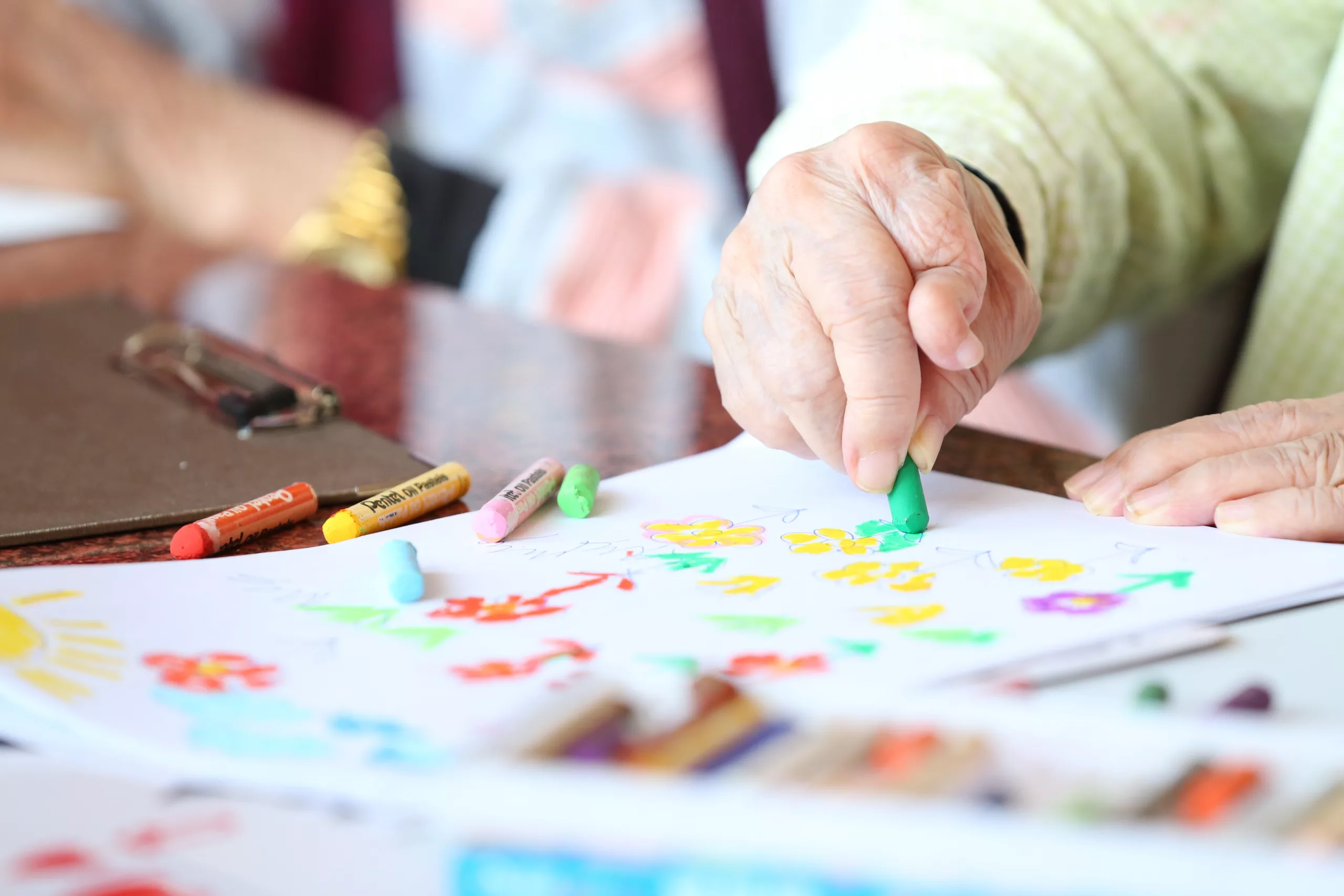Have a question?
Call us : 0161 460 8303
Opening hours
Mon – Sun : 8am – 6pm
Dementia Care Services
For more than 25 years, our warm and loving family care agency in Stockport has been a source of happiness and care, offering exceptional services to our cherished community. Embracing each unique individual, our dedicated team provides personalised care that warms the heart. With experience and a caring touch, we create a safe haven filled with joy and bright smiles. Entrust us with your loved ones, as their happiness and well-being mean everything to us
We’ve got all your Stockport care needs covered.
What is dementia / Alzheimer’s care?
Dementia care is all about giving you the support you need to carry on living at home.
Dementia care is condition-led support designed to support you or your loved one as you face the specific challenges presented by your dementia. At Kind Hearted Care, we provide dedicated dementia care to people in the comfortable, familiar surroundings of their own home. As a specialist dementia care provider, we train our carers to follow a routine that your loved one is used to and comfortable with, maintaining their independence as much as possible.
Dementia / Alzheimer’s care can support you with:
Condition-led care
Every case of dementia is unique. Our dementia specialist-supported carers always offer your loved one a care plan that is designed around their condition.
Responsive support
Our dementia care is responsive and can be adapted as your needs change, which is essential when supporting a complex medical condition
Fall prevention and management
We’ll work with you and your loved one to ensure your home is accessible and free of trip hazards, and that they’re confident moving around
A familiar environment
Staying at home for care means your loved one can manage and adapt to their symptoms in a familiar environment where they’re comfortable and secure
Experienced carers
Your loved one will get dedicated support from carers who are fully trained and equipped for caring for customers with dementia
Emotional support
A significant part of our holistic approach to dementia care is ensuring that both your loved one and the family are emotionally supported
What is dementia / Alzheimer’s?
Dementia is an umbrella term for a range of progressive conditions that affect the brain.
There are numerous types of dementia; conditions grouped under the generalised term “dementia” are caused by abnormal changes to the brain, and normally affect the person’s memory. The brain is made up of billions of neurones (nerve cells) that communicate with each other through chemical signals. If a person has dementia, these neurones are damaged which means that these messages cannot be sent efficiently which in turn affects all functions of the body.
- Alzheimer’s
- Vascular dementia
- Lewy body dementia
- Frontotemporal dementia
- Mixed dementia
Tips for Caregivers and Families of People With Dementia
Tips for Everyday Care for People With Dementia
Early on in Alzheimer’s and related dementias, people experience changes in thinking, remembering, and reasoning in a way that affects daily life and activities. Eventually, people with these diseases will need more help with simple, everyday tasks. This may include bathing, grooming, and dressing. It may be upsetting to the person to need help with such personal activities. Here are a few tips to consider early on and as the disease progresses:
- Try to keep a routine, such as bathing, dressing, and eating at the same time each day.
- Help the person write down to-do lists, appointments, and events in a notebook or calendar.
- Plan activities that the person enjoys and try to do them at the same time each day.
- Consider a system or reminders for helping those who must take medications regularly.
- When dressing or bathing, allow the person to do as much as possible.
- Buy loose-fitting, comfortable, easy-to-use clothing, such as clothes with elastic waistbands, fabric fasteners, or large zipper pulls instead of shoelaces, buttons, or buckles.
- Use a sturdy shower chair to support a person who is unsteady and to prevent falls. You can buy shower chairs at drug stores and medical supply stores.
- Be gentle and respectful. Tell the person what you are going to do, step by step while you help them bathe or get dressed.
- Serve meals in a consistent, familiar place and give the person enough time to eat.
Tips for Changes in Communication and Behavior for People With Dementia
Communication can be hard for people with Alzheimer’s and related dementias because they have trouble remembering things. They also can become agitated and anxious, even angry. In some forms of dementia, language abilities are affected such that people have trouble finding the right words or have difficulty speaking. You may feel frustrated or impatient, but it is important to understand that the disease is causing the change in communication skills. To help make communication easier, you can:
- Reassure the person. Speak calmly. Listen to his or her concerns and frustrations. Try to show that you understand if the person is angry or fearful.
- Allow the person to keep as much control in his or her life as possible.
- Respect the person’s personal space.
- Build quiet times into the day, along with activities.
- Keep well-loved objects and photographs around the house to help the person feel more secure.
- Remind the person who you are if he or she doesn’t remember, but try not to say, “Don’t you remember?”
- Encourage a two-way conversation for as long as possible.
- Try distracting the person with an activity, such as a familiar book or photo album, if you are having trouble communicating with words.
Tips for a Healthy and Active Lifestyle for People With Dementia
Eating healthy and staying active is good for everyone and is especially important for people with Alzheimer’s and related dementias. As the disease progresses, finding ways for the person to eat healthy foods and stay active may be increasingly challenging. Here are some tips that may help:
- Consider different activities the person can do to stay active, such as household chores, cooking and baking, exercise, and gardening. Match the activity to what the person can do.
- Help get an activity started or join in to make the activity more fun. People with dementia may lack interest or initiative and can have trouble starting activities. But, if others do the planning, they may join in.
- Add music to exercises or activities if it helps motivate the person. Dance to the music if possible.
- Be realistic about how much activity can be done at one time. Several short “mini-workouts” may be best.
- Take a walk together each day. Exercise is good for caregivers, too!
- Buy a variety of healthy foods, but consider food that is easy to prepare, such as premade salads and single portions.
- Give the person choices about what to eat, for example, “Would you like yogurt or cottage cheese?”
Tips for Home Safety for People With Dementia
As a caregiver or family member to a person with Alzheimer’s or related dementias, you can take steps to make the home a safer place. Removing hazards and adding safety features around the home can help give the person more freedom to move around independently and safely. Try these tips:
- If you have stairs, make sure there is at least one handrail. Put carpet or safety grip strips on stairs, or mark the edges of steps with brightly colored tape so they are more visible.
- Insert safety plugs into unused electrical outlets and consider safety latches on cabinet doors.
- Clear away unused items and remove small rugs, electrical cords, and other items the person may trip over.
- Make sure all rooms and outdoor areas the person visits have good lighting.
- Remove curtains and rugs with busy patterns that may confuse the person.
- Remove or lock up cleaning and household products, such as paint thinner and matches.
Take a look at some of the Alzheimer’s care services that we offer
Our comprehensive homecare for the elderly in Stockport services include:
(Click Link)
- 1
- 2
- 3
- 4
- 5
- 6
- 7
Caring for the wise and gray,
Brings sunshine to every day.
Loving hearts and laughter share,
Memories with those who’ve been there.
In their smiles and twinkling eyes,
Generations connect, love never dies.
Together we learn, grow and play,
Blessings abound in every way.

